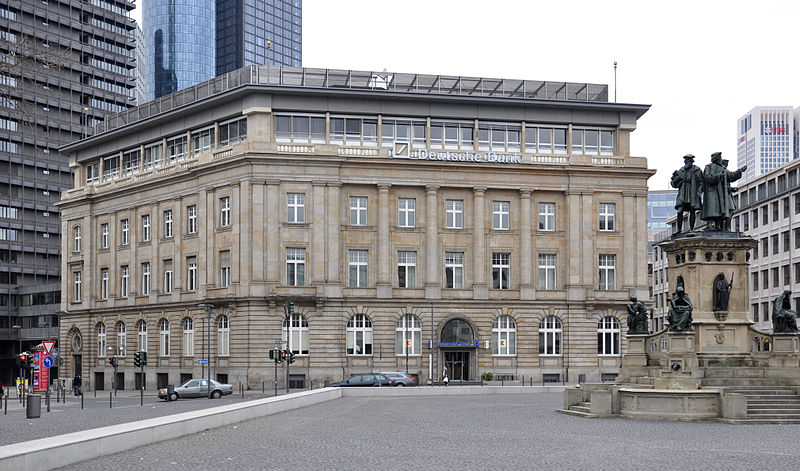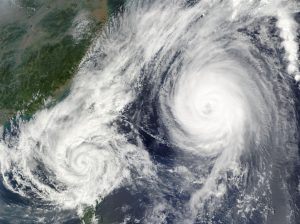Deutsche Bank Forecasts a “Major Recession” in the U.S.
The major U.S. bank released a report that previewed economic struggles for the country… Image from Wikimedia Commons.
April 29, 2022
Earlier this month Deutsche Bank became the first major U.S. bank to forecast a “mild recession”, and since then, they’ve heightened their warning due to the Federal Reserve’s goal to knock down high inflation, stating there will be a major recession in a report to clients on Tuesday, April 26th.
Self-described as “the extreme outlier on the street,” the German bank worries that while inflation may be peaking, it will be a while before the rate gets down to the Federal Reserve’s goal of 2%, suggesting that central banks will potentially hurt the economy through aggressively increased interest rates. In the report, titled “Why the coming recession will be worse than expected”, Deutsche Bank economists wrote, “We regard it…as highly likely that the Fed will have to step on the brakes even more firmly, and a deep recession will be needed to bring inflation to heel.”
Peter Hooper, global head of economic research, stated in a phone interview with MarketWatch on Tuesday, “Our house view is for a mild U.S. recession that is a couple of quarters of negative growth, and unemployment going up 1 to 1.5 percentage points…A severe recession, which we saw in 2008 and in the early 1980s, is a very different animal: something that lasts a year, a year and a half, and has unemployment going up by 5 to 6 percentage points.” He went on to elaborate that the recession the researchers predicted would be in between the two extremes: “…something lasting several quarters, with a substantial drop in GDP and unemployment going up by 3 percentage points, but enough to turn the inflation psychology.”
Consumer price inflation reportedly hit a 40-year high in March spurred by a jump in gas and food prices, with the Consumer Price Index rising 8.5%—a level not seen since December of 1981 when the CPI was at 8.9%. Additionally, unemployment rates are projected to drop to their lowest levels since the early 1950s, according to Moody’s Analytics.
It is these factors and a variety of similar other ones that play a role in Deutsche’s reasoning for a deep recession. The bank also created an index tracking the distance between inflation and unemployment over the past 60 years as well as the Fed’s stated goals for those metrics in order to prove its point. According to Deutsche Bank, the research shows that the Fed is “much further behind the curve” than it was since the early 1980s, which itself was a period when extremely high inflation caused central banks to skyrocket interest rates to record highs, ultimately devastating the economy.
Deutsche Bank stated that the Fed had a history of “never [being] able to correct” overshoots of inflation and employment, even smaller ones, “without pushing the economy into a significant recession.”
However, Deutsche Bank’s prediction is also considered pessimistic by many, especially compared to other major forecasters, according to Bloomberg. Goldman Sachs, a leading investment banking company, has stressed that recession is “not inevitable”, even though it will be “very challenging” bringing down inflation and wage growth.
“We do not need a recession but probably do need growth to slow to a somewhat below-potential pace, a path that raises recession risk,” wrote Goldman Sachs in a report Friday evening. Mark Haefele, chief investment officer at UBS Global Wealth Management, another multinational investment bank and financial services company, echoed similar thoughts, writing in a report on Monday, “Inflation should ease from current levels, and we do not expect a recession from rising interest rates.”







